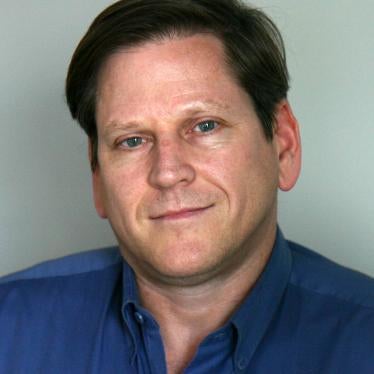KUALA LUMPUR: Human Rights Watch (HRW) is urging Malaysia to urgently adopt human rights reforms if it is serious about being elected onto the United Nations Human Rights Council on May 13.
Malaysia is one of four Asian countries competing for a seat on the Council. A total of 192 members of the UN General Assembly will be voting for the country that has made significant contributions to protecting and promoting human rights. Malaysia needs to win support from at least 97 countries.
However, HRW has expressed grave concern over Malaysia's apparent lack of commitment to human rights. In a recent letter to Prime Minister Najib Tun Razak, it urged the prime minister to justify Malaysia's candidacy for the council by reforming its laws, policies and procedures.
Among others, the letter also called on Malaysia to revoke the Internal Security Act (ISA) as well as pledge to accept all request for visits by UN human rights experts to the country.
Minister in the Prime Minister's Department Abdul Nazri Aziz however has dismissed these calls and emphasised that the ISA 'will never be revoked'.
In an exclusive interview with FMT, Phil Robertson, the deputy director of HRW's Asia division, talks about the importance of Malaysia earning a seat on the council, it's ability to meet international expectations and its reputation in the global arena.
FMT: Why is it important for Malaysia to obtain a seat on the council?
Phil Robertson: There are standards to be met to ensure that the candidates don't get a free ride to the council. These standards are outlined in the UN General Assembly resolution which states that members of the Human Rights Council shall "uphold the highest standards in the promotion and protection of human rights" and "fully cooperate with the Council."
HRW believes that Malaysia has a long way to go in reaching these standards and this is why it is important for it to earn the seat at the Council. Otherwise, other governments whose human rights records come before the council will not take Malaysia seriously.
Malaysia's case is important especially since the government made a number of pledges in 2006 which were not implemented. This time Malaysia's commitments are particularly vague and bear serious scrutiny. Even Malaysian groups, such as the Human Rights Committee of the Malaysian Bar, have expressed similar concerns.
A stint on the council should help not only the cause of human rights at the UN, but also improve respect for the human rights of all Malaysians as well.
What does the council need to see as an initial indication of Malaysia's commitment towards human rights?
Permission for the UN Special Rapporteurs to visit the country. These are important people whose mandate is to work with the government to help improve human rights in various areas, yet they regularly get the brush off by the Malaysian government.
Malaysia has been criticised for good reason for its shoddy treatment of migrant workers, the violation of their rights on a systemic basis, and the horrific conditions in detention centers. Why then does the government continue denying the Special Rapporteur on Migrants the opportunity to come to Malaysia, examine the situation, and make recommendations for fixing these problems?
The government also maintains that the judiciary is independent. Then why is it so reluctant to invite the Special Rapporteur on the Independence of Judges and Lawyers to visit the country?
There are now eight different UN human rights experts waiting to hear about their requests to visit Malaysia, and some of these requests date back to 2002!
This would indicate Malaysia's seriousness about addressing its record instead of another flowery briefing paper on commitment to human rights that it has no intent of implementing!
Has the prime minister responded to HRW's letter?
No, he hasn't and this is worrisome given that the election is just three days away. We're still hoping for a substantive response from him or whoever he designates to respond.
Despite promising words from Najib when he took office, very little has changed. For instance, the police still abuse both Malaysian citizens and migrants with impunity, as if they are a law unto themselves, while police reform goes nowhere.
We would be delighted if the Malaysian government surprises us, and tomorrow announces practical steps to implement some of their promises but we're realistic enough to know that it's not that easy.
How is Malaysia being perceived by the rest of the UN General Assembly in terms of its human rights issues?
Other members of the UN General Assembly recognize that Malaysia has many serious problems on human rights. This is especially true for some of its Southeast Asia neighbours whose nationals migrate to work in Malaysia, and who have regularly had their rights violated there.
A number of European and North American governments have expressed great concern about Malaysia's continued use of arbitrary, preventive detention through the ISA, the Emergency Ordinance Act 1969, Dangerous Drugs Act 1985 and the Restricted Residency Act 1933.
Many of those countries have also expressed great disappointment that Malaysia has ignored many of the recommendations they made at the session of the Universal Periodic Review of Malaysia's record at the UN Human Rights Council in 2009.
Malaysia is seen as a country with serious human rights problems but also as with potential and capacity to solve those problems if its leaders show the political commitment to do so.
Phil Robertson is Deputy Director of the Asia Division at Human Rights Watch.







